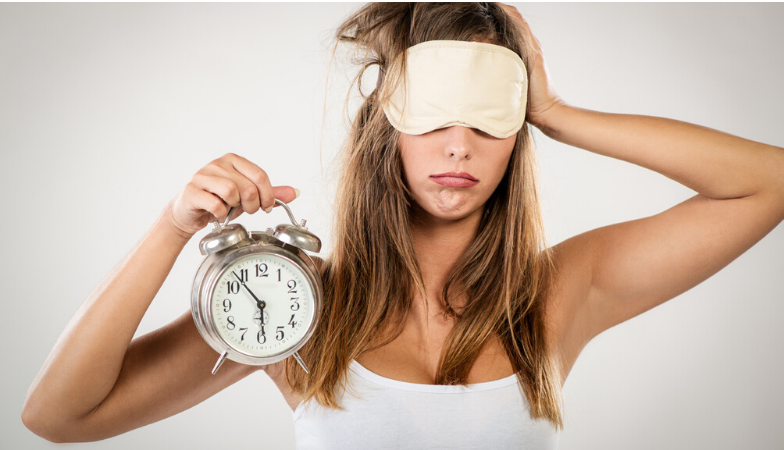If you have depression as well as insomnia, the two could be closely linked, editor Anna Magee has found
Insomnia is the malady of the modern age, with a fifth of Britons getting less than five hours sleep a night. But the same could be said for mental health disorders, suffered by a startling one in four people.
Up to now, most authorities have assumed mood problems inevitably lead to sleep problems but a growing body of evidence suggests the opposite could be true – that lack of sleep could cause psychological problems such as depression, which affects one in ten Brits.
How does sleeplessness impair mental health?
Two thirds of people with mental health problems also sleep badly. But while the idea that prolonged periods of severe insomnia could lead to common mood problems was still in its infancy 20 years ago, repeated studies now seem to confirm it.
‘Traditionally, sleep difficulty has been regarded as a secondary consequence of psychiatric disorders, but overlooked as a cause,’ says Dr David Freeman, clinical psychologist.
‘Now there is compelling evidence suggesting that having difficulty getting to sleep or staying asleep can be a contributing factor in the development of later problems, particularly depression.
Insomnia can be both a consequence and a cause of mood disorders’.
As early as 1987, scientists at John Hopkins University in Baltimore followed 1053 medical students for 34 years after graduation and found that 101 of them developed clinical depression. The students that had trouble sleeping were twice as likely to go on and develop depression in later life.
Sleeplessness can lead to insomnia
20 years later in 2007, a study conducted in Staffordshire and published in the journal Sleep followed 4885 people for 12 months and found that 15 per cent of those who had insomnia for the entire year also reported anxiety or depression.
According to Professor Gaby Badre, sleep medicine consultant and professor of clinical neuroscience at the London Clinic, one third of people who experience serious insomnia for a prolonged period are at risk of going on to develop depression and one third of people who experience serious insomnia for a prolonged period are at risk depression.
one third of people who experience serious insomnia for a prolonged period are at risk of going on to develop depression
‘Although the reverse is also true, that in one third of patients with depression will have led to sleep problems, we now acknowledge that people suffering disturbed sleep may be suffering from an early warning that a subsequent depression may develop’.
That’s not to say that all people with sleeping problems will develop depression. ‘Insomnia is never enough on its own,’ says Dr Freeman. ‘What prolonged lack of sleep can do is make people more vulnerable to later problems in mood.’
Few people will dispute the fact that a few consecutive nights disturbed asleep can make you feel awful during the day. But exactly how prolonged insomnia may cause mood problems is not fully understood.
One theory is that it relates to a complex nocturnal web of hormones and brain chemicals that our bodies maintain and balance while we sleep; a web that’s inextricably linked to our mental health.
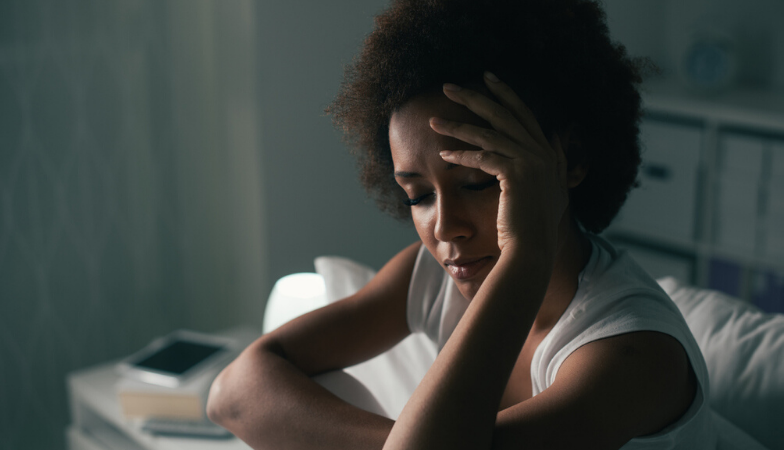
Sleep disturbances can cause mood disorders
Even moderate changes in sleep times can have an effect on mood. Last year, a study also in the journal Sleep at The Centre of The Treatment and Study of Circadian Rhythms at Douglas Mental Health University Institute in Montreal, found that serotonin levels (a key brain chemical for mood stability) were lower in shift workers than in day workers.
‘Repeatedly disturbed sleep can make people more vulnerable to developing mood disorders by disturbing circadian rhythms or the natural biological clock that governs sleep-wake cycles,’ says Professor Paul Keedwell, consultant psychiatrist and expert on depression at the Institute of Psychiatry, King’s College London.
Among one of the possible causes of this is disturbed levels of the hormone melatonin, secreted by the pineal gland and thought to play a key part in controlling sleep-wake rhythms and how our bodies respond to day and night.
serotonin levels – a key brain chemical for mood stability – were lower in shift workers
Recently, a new melatonin based anti-depressant, Valdoxan (generic name agomelatine), was licensed in the UK to address this fine balance – the first of its kind – without the side effects of sexual dysfunction and daytime drowsiness that come with commonly prescribed anti-depressants known as SSRIs, and set to be available in autumn this year.
It works by addressing the fine balance between hormones our bodies release during day and night and help redress this balance to retune the biological rhythms that could be causing insomnia related depression.
‘Sleep is an essential process,’ says Professor Badre. ‘If we don’t sleep we die, because sleep is the time that our bodies recover physically and emotionally from the day’s events. Studies in the 1970s showed that rats deprived of sleep completely were all dead within 20 days.’
How are the 3 phases of sleep linked to insomnia?
We go through three phases of sleep, explains Professor Badre. Light sleep, deep sleep and Rapid Eye Movement or REM sleep. Each type activates different neurotransmitters, which are brain chemicals central to mental functioning.
Each phase lasts between 60 and 90 minutes and during a typical full nights sleep that cycle might repeat up to six times.
Meanwhile, there are two different types of insomnia, trouble getting to sleep and trouble staying asleep. Both in prolonged periods can lead to sleep deprivation.
But people who suffer with or later go on to develop depression often fall into the second category, those who can’t stay asleep, as processes the body carries out during sleep – essential to neurological health – are repeatedly interrupted.
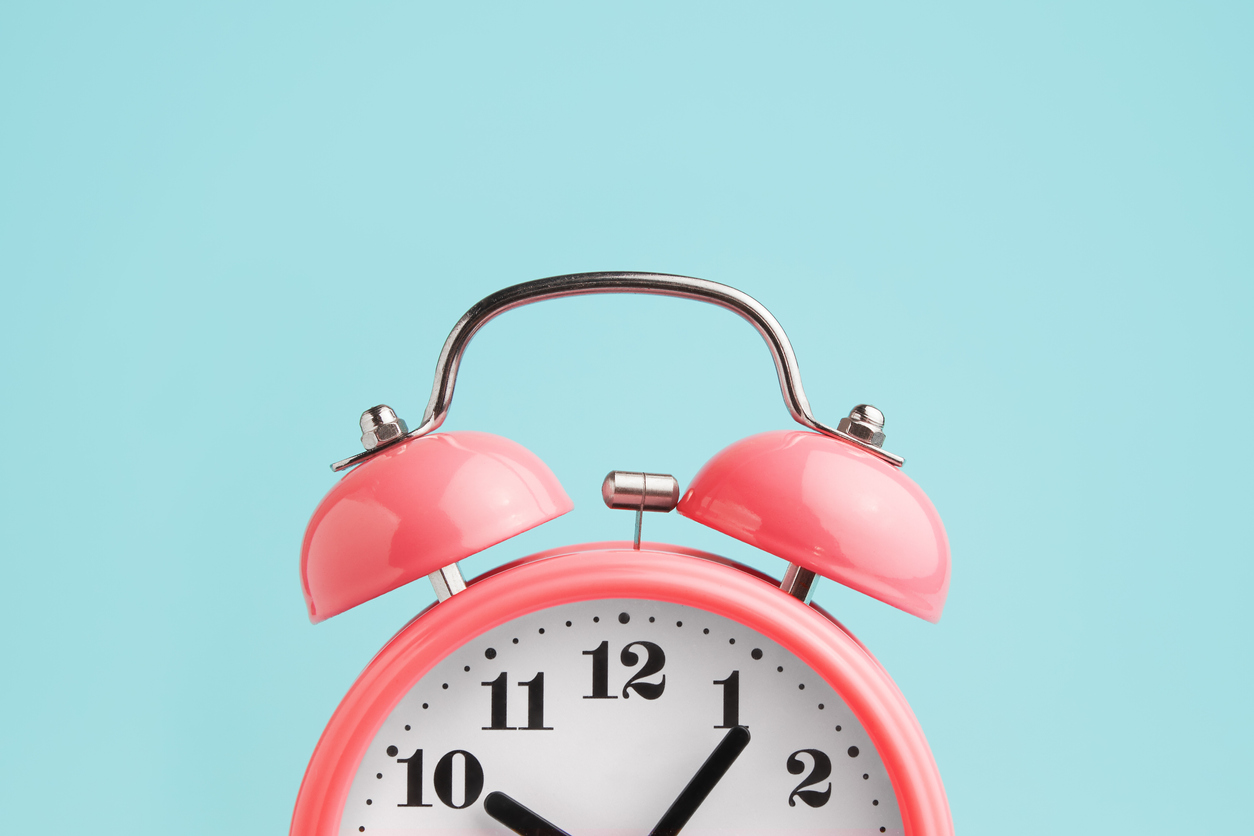
‘For example, when you enter phase two, deep sleep the body releases key hormones,’ explains Professor Badre. ‘Chief among these is growth hormone, which balances out stress hormones such as adrenaline and cortisol that accumulate during the day.’
If we have a shortage of deep sleep, our bodies don’t get the time to release and balance all these hormones so the result is waking up with an excess of stress hormones in the body – morning grumpiness.
‘If you are physically healthy, you can compensate by using up those excess hormones during the day. But if you have a tendency towards psychological problems, or other risk factors such as stress at work, the effects of this lack of sleep could, over time, act as a trigger towards mood problems.’
Is lack of REM sleep causing your insomnia?
REM sleep on the other hand, is thought to be responsible for information, emotion and memory processes and typically waking up in this phase of sleep, could also lead to emotional difficulties.
In a study at the University of California, psychologists showed people pictures of faces expressing different emotions such as fear, anger, sadness and happiness and asked them to rate how emotional they thought each face was.
They did this at midday and again at 6pm and in the second session, participants reacted more negatively to angry and fearful faces.
But half of the volunteers were allowed to take a 90 minute nap at lunchtime in which they managed to achieve REM sleep (researchers did brain scans as they slept) and those not only didn’t react negatively to the angry or sad pictures, they were also more receptive to the happy ones.
How to cope with insomnia?
A massive 60 per cent of people with a sleep disorder have never visited their doctor for advice or treatment (despite for some, having suffered for up to 12 years), and one third believe that nothing can be done about it. But some researchers now speculate that getting help for insomnia early could prevent depression.
But sleeping pills are not the answer. ‘There is no doubt that benzodiazepines such as Diazepam or Temazepam, typically prescribed for sleep problems lead to dependency, so it’s never advisable to take them for longer than two weeks,’ says Professor Badre.
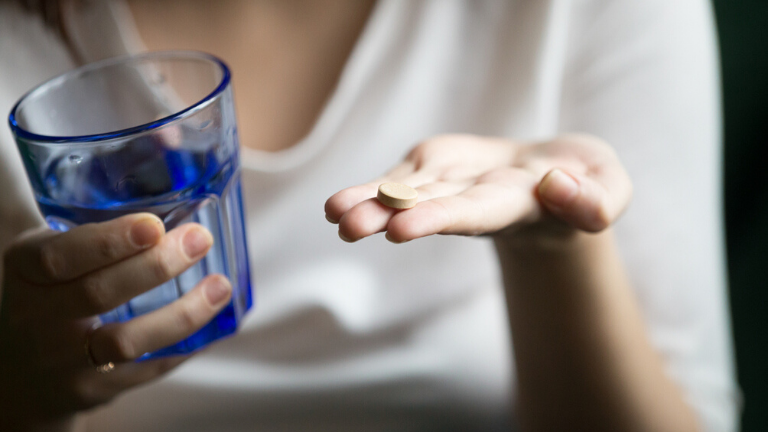
According to Dr Adrian Williams, Consultant Physician and Director, Lane-Fox Respiratory Unit & Sleep Disorders Centre, St Thomas’ Hospital, London and director of the London Sleep Centre, the idea that prolonged sleep problems could later lead to both depression and mood problems is now ‘an accepted one in sleep medicine’.
The most effective early non-drug treatment he says, is Cognitive Behavioural Therapy or CBT specifically for insomnia.
CBT as a way of treating insomnia
CBT is a psychological therapy that teaches people to change their habitual behavioural and thought patterns and a large body of evidence has shown that it helps sleep problems long term.
‘Studies have shown that in just six CBT sessions, insomnia can be improved,’ says Dr Freeman. ‘Up to now, all the studies on insomnia and CBT have treated the sleeplessness in isolation.
What we need now are further studies to help determine whether treating early signs of insomnia with CBT could reduce the later risk of depression, anxiety and mood disorders. The next phase of research will focus on that.’
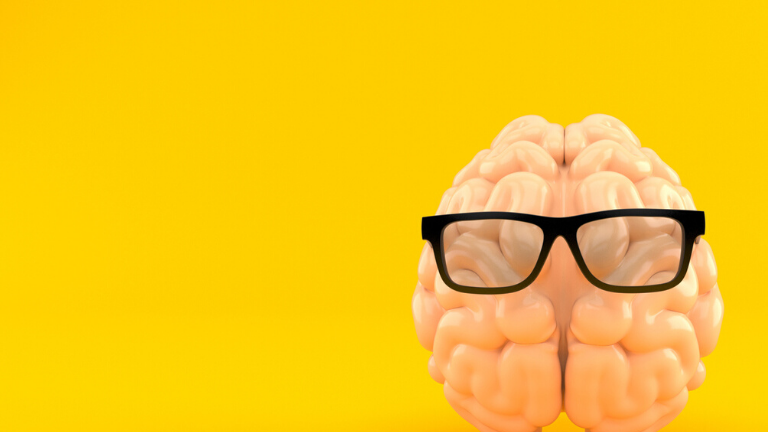
Signs you may be at risk of insomnia
Could you be at risk? Don’t panic. The chances that your insomnia will trigger depression are low. But certain signs may indicate an increased risk:
- If the insomnia has lasted most nights for 12 weeks or more
- If you have other risk factors such as prolonged stress at work, bereavement or other stressful event as well as sleep problems.
- If you experience repeated tiredness and grumpiness in the mornings, hyperactivity during the day, an inability to get to sleep, and a pattern of waking in the very early nocturnal hours.
- If you are experiencing a prolonged period of insomnia speak to your GP about a referral to sleep clinic or CBT therapist.
How you can put insomnia to bed ?
- Keep regular hours. Going to bed and getting up at the same time everyday, even at weekends will help program your sleep-wake cycle.
- Create a restful sleeping environment. Keep the bedroom for rest, sleep and sex. Make sure the temperature is not too warm or cold and as quiet and dark as possible.
- Take more exercise during the day, preferably outside during daylight (natural light helps set your body clock) – but not too close to bedtime or it could keep you awake.
- Cut down in caffeinated beverages after 2pm. Try a hot milky drink or herbal tea in the evening.
- Don’t smoke. Nicotine, especially before bed is a stimulant and smokers take longer to fall asleep.
- Don’t obsess about it. If you can’t sleep, get up and do something relaxing such as reading, until you feel sleepy again.
- If you use the alarm, turn it around to face the wall (or put it under the bed). Clock-watching can increase insomnia.
- If you do wake up to go to the loo, try not to put on any lights. The hormone that helps you sleep, melatonin, is produced when it’s dark. Going from bright light or a flickering TV straight to bed can make it hard to sleep so spend some time relaxing in dim lights before bed.
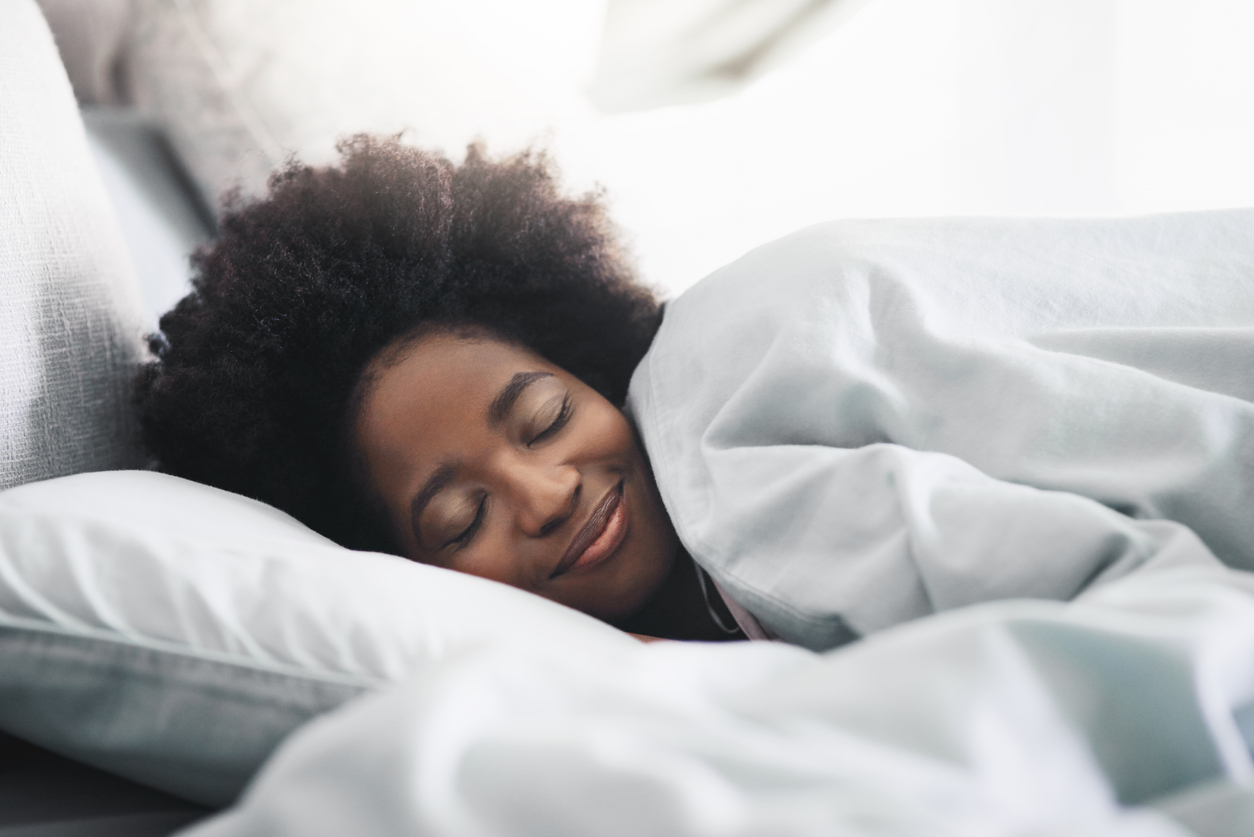
Relevant Healthista content:
Got insomnia? The easy breathing technique this Instagram yoga star says will help
13 insomnia remedies to help you sleep better
Got insomnia? This 10 minute meditation for sleep will help
More Healthista content you might like:
From depression to body image – 7 mindfulness meditation videos for mental health
This 10-minute meditation for depression will lift your mood fast
Like this article? Sign up to our newsletter to get more articles like this delivered straight to your inbox.



